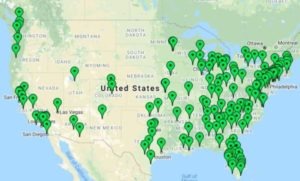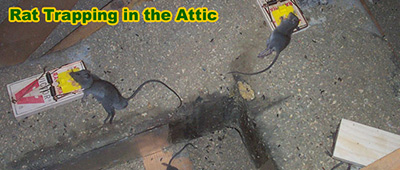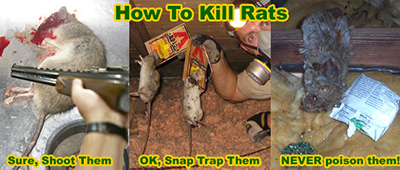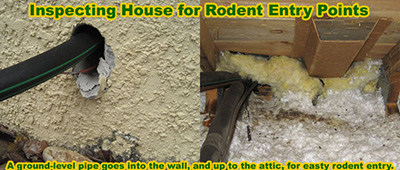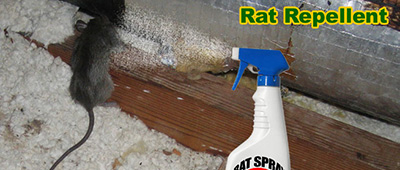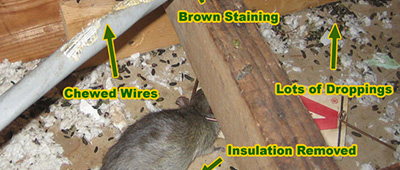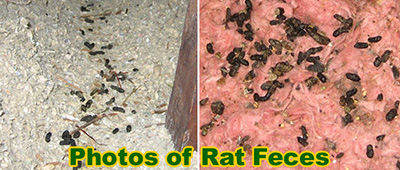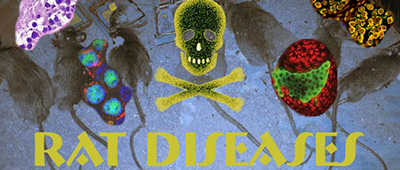Rats and other critters take shelter in automobiles a lot,
especially in the frigid cold of winter. Some of them get so
comfortable being insulated from the cold and from predators
that they actually start to live there. This does not only
happen to old or stationery cars too, many a seasoned car
mechanic will tell of their encounter with rats in vehicle
engine compartments.
Unfortunately, the propensity of rats to gnaw and chew at
cables and wires does not auger well for the car owner as
they often cause extensive damage under the hood. They cause
a whole lot of wiring problems when they chew on wires,
especially in hidden places that are hard to spot. Telltale
signs of rats living in your car include sightings of
droppings and trash, dusty footprints, and nibbled plastic
or padding.

Getting rid of rats living in your car can be done in the following ways:
1. Prevention is key. If you have had this problem before or if your car is going to be stationery for a while in a rat-prone environment, try prevention. For one, park it in a garage and keep food and seeds away from it. These include pet food, trash cans, bird seed, spray cheese, and what have you.2. Set up a snap trap. These essentially attract a rat with a food bait and then swiftly clamps down on the rat's neck once the trigger is activated. The rat dies instantly in most cases and can be disposed of properly. In disposing of both rat and trap, ensure that you wear rubber gloves and spray the trap with a ten percent bleach solution to disinfect before discarding it. Live traps are not recommended in this case, as the trapped rat would continue to defecate in the engine space and could possibly bite.
3. Install ultrasonic sound devices, which emit frequencies that rats find irritating in your car hood. These are very much available in stores.
4. After getting rid of the rat(s), carefully pressure wash the engine compartment to clear all remaining feces or urine away. Leaving this undone is a sure way to invite your rodent visitors right back into the car.
5. Avoid using a car cover, if possible
Some ineffective methods to get rats out of your car:
- Spraying at the rat with a squirt bottle
- Blasting the car undercarriage with an air hose
- Gunning your car round the field in a bid to unsettle and dislodge the varmint
- Cursing at it
Read more about rats:
Do cats keep rats away?
Do rats carry rabies?
Can Rats Chew Through Wires in a
Car?
Does car insurance cover rat
damage?
Reader Email:
I have attached some pictures of damage to my car under a carport. I live in SE Kansas just outside city limits and surrounded by fields. I am trying to figure out what kind of rodent these droppings are from. They look pretty good size. They did $3700 worth of damage in a short period of time. Someone suggested peppermint oil on a cotton ball and change out every 2 weeks in the engine area. Someone else suggested taking the covers off all the units under the hood as they like dark places. Another idea is to keep the hood open. I thought maybe a solar light some how placed in the engine area. I was told the bags of herbs smell they don't like, you can buy don't work. This happened in May also, but only $500, so I have sticker shock now. I have got to find a solution as I am sure it will happen again if I don't. Thanks for any help.THE SAME APPLIES TO MOUSE REMOVAL
Although I wrote this site with rats in mind, such as the Roof Rat and Norway Rat, the same principles apply to other rodents, such as the house mouse. Mice behave very similarly to rats, they're just smaller. Email me if you have any questions about mouse removal, how to remove mice, rodent removal, other queries.
Warm places are ideal for small rodents to seek shelter. This is why we often find rats inside the car. In addition to causing illness, these animals can also cause serious damage to your vehicle.
Do you want to know how to get rid of those little burdens?
Take a look at the info below!
Do you want to know if there's a rat living in your car?
It's very easy. Just check for signs of urine or droppings. These are usually very easy to see and can be in large quantities. Also, check the wires for bites, which is another sign that there are rats living in your car. Keep in mind that after feeding, rats often seek out water, so carefully check the wiper system and the engine.
What happens when there's a rat in your car?
Some of the failures our vehicle may have are usually caused by rats. It is surprising how much damage these small animals can cause. Rats have a habit of chewing on the wiring causing countless damages to the electrical system.
In addition to filter damage, these little animals can even destroy the engine. In the most serious cases, rats cause damage not only to the car but also to the passengers. When a rat dies or defecates near the filters or ducts of the ventilation system, they contaminate the air which could cause illnesses.
How can you get rid of the rats inside your car?
It is important to note that when rats cause damage to a vehicle, it is necessary to act quickly. Continuously checking and replacing parts will affect your budget.
Here are some tips for getting rid of these pesky rodents:
- Constantly clean up around your vehicle. Debris scattered around your vehicle can attract large numbers of rats.
- If you have a pet such as a dog or a cat, you can walk it around the car. Rats don't like the smell of dogs or cats. You can also use some of your dog's or cat's hair and put it under the hood.
- If you see that your car's wiring is being chewed, you can put some pepper over it. You can also do this in places where rats live.
- You can use a car mouse repellent or a smoke bomb under the vehicle. The smoke will make the rats run away.
- Cage traps are very useful for catching rats. You can put it under the front seat and use food to attract them to it.
- To prevent rats from living in your car, it is important to always keep it clean.
- It is not advisable to use rat poison, the reason being that they can die inside the vehicle and subsequently be difficult to find.
It is important that you always pay attention to your car for unpleasant smells or noises. Although these are small animals, they can cause great damage. Remember to always keep away from open places, wet areas, alleys, and keep the surroundings clean. It is certainly better to be safe than sorry.

